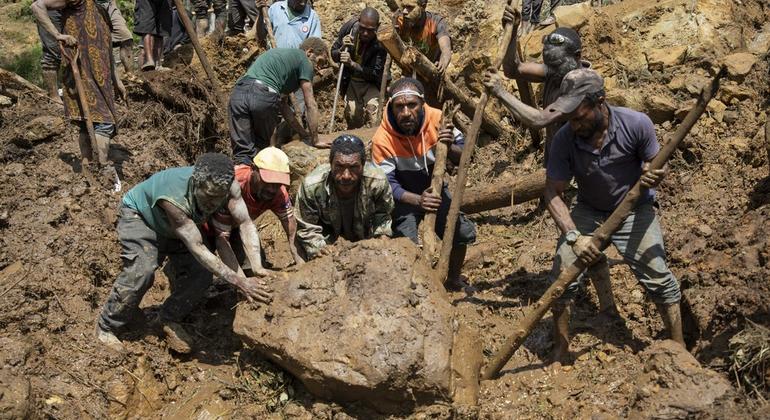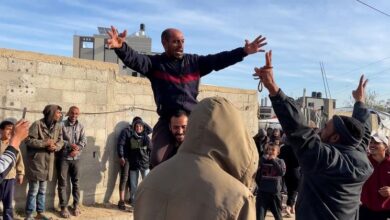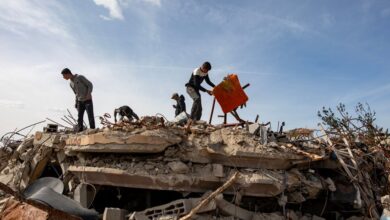UN supports Papua New Guinea after deadly landslide


So far, six bodies have been found and the number is expected to rise, the United Nations Country Team (UNCT) said. speak on Tuesday.
The total affected population, including those who may need evacuation and resettlement, is estimated at approx 7,849 peopleor 1,427 households, with most are under 16 years old.
A total of 150 structures are estimated to have been buried.
Bridge collapse
Although security in this remote northern province is affected by tribal fighting, aid deliveries are not currently directly threatened.
However, UNCT reports a bridge on one of the main roads in the mountainous area collapsed on Tuesday morningcomplicating access and disrupting communications between Enga and the rest of the region.
The alternative route to Enga is via another motorway, which could add another three hours to the journey, so the Defense Force is looking at options to repair the bridge as soon as possible.
More worries about natural disasters
Rescue efforts have also been complicated by concerns that Flooded ground can move againand as heavy rains continue, the United Nations International Organization for Migration (IOM) said on Tuesday.
“We don’t want any more disasters like the current one,” Itayi Viriri, IOM’s Asia and Pacific regional spokesperson, said via Zoom from Bangkok on Tuesday.
The landslide occurred at 3 a.m. local time on Friday, “when most people were probably sleeping,” he told journalists in Geneva, burying homes. , infrastructure and agricultural land under up to eight meters of soil and debris.
“A lot of the people affected by this landslide actually moved to this area after escaping tribal conflicts in other parts of Enga province. So, these are people who were displaced and now have to move to other places,” he added.
Drinking water concerns
IOM warns that with so many bodies still undiscovered under the rubble, concerns have arisen about whether groundwater flowing down the mountain is contaminating local drinking water sources.
“Clearly what is needed now is access to clean water; Quite a bit of the water that the community normally has access to is now under the rubble, Viriri said.
“So of course providing those things along with food, clothing, shelter items, kitchen utensils, anything that can try to alleviate the hardship that people are facing at this time. This.”
Require to be supported
The National Disaster Center has officially written to the United Nations Resident Coordinator in PNG to request international assistance. All partners are also encouraged to collaborate and coordinate support through the Center and provincial disaster management agencies.
Immediate needs include clean water, food, clothing, shelter supplies, kitchen utensils, medicine and hygiene kits, and psychosocial support. The provincial government also requested the international community to immediately deploy geotechnical engineers to carry out geological hazard assessment.
The United Nations has been supporting authorities since the disaster began, including search and rescue operations, establishing emergency centers and assessing initial and immediate needs.
UN on the ground
IOM and United Nations Development Program staff (UNDP) is on the scene with the United Nations Humanitarian Coordination Adviser.
The UN is also coordinating the response efforts of all partners, both at national and provincial levels, in addition to supporting the Government to address immediate needs.
IOM, UNDP, United Nations Children’s Fund (UNICEF), United Nations Population Fund (UNFPA) And United Nations Women will provide relief goods and psychosocial support, in coordination with local emergency response teams.
UNICEF is strengthening its emergency response and has so far distributed a number of hygiene and dignity kits, including buckets, water and soap dispensers as well as reusable sanitary napkins, cloth Energy and other items have been delivered to the local Provincial Health Authority.
“We are working closely with the authorities and community organizations of Papua New Guinea to provide vital support to survivors of this terrible disaster,” said UNICEF Representative Angela Kearney. speak on Tuesday.
“It is clear that more than 40% of those affected are children under 16 years of age who have been deeply traumatized by the loss of their families, homes and livelihoods.”




